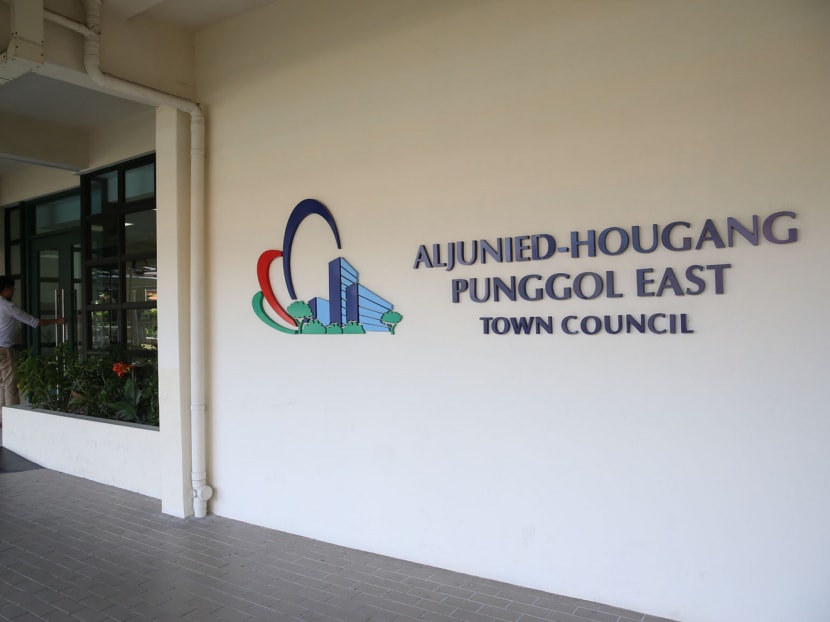Conflict of interest, lack of internal controls most serious lapses: Analysts
SINGAPORE — Even though no evidence of fraud or criminal wrongdoing was flagged by the Auditor-General’s report on Aljunied-Hougang-Punggol East Town Council’s (AHPETC) financial affairs, observers TODAY spoke to raised concerns about the town council’s management of business transactions with companies in which council staff hold ownership interests.
While other lapses in the Workers’ Party-run AHPETC can be attributed to learning the ropes of managing a large town council, such conflicts of interest raise questions of integrity. The issues surfaced by the Auditor-General also suggest the need to scrutinise how other town councils are being run and managed, observers said.
Some lapses described in the report released yesterday include AHPETC’s failure to transfer monies into the sinking fund bank accounts within the time frame stipulated in the Town Councils Financial Rules, and not having a system to accurately monitor arrears of conservancy. AHPETC was also found to be lacking internal controls for safeguarding valuables and handling receipts, and proper bookkeeping systems.
Associate Professor Lan Luh Luh of National University of Singapore’s (NUS) business and law schools said these are mostly “basic things” that can be easily resolved by hiring an accountant.
“There’s no allegation of fraud, but putting money all over and not keeping it in proper accounts, I think that’s very messy,” said Assoc Prof Lan. “If you don’t exercise care when you take public money, it can be quite serious, because it allows room for fraud.”
AN ISSUE OF TRUST
Of greater concern was the finding that AHPETC had not fully disclosed the fact that their secretary, general manager and deputy general managers have ownership interests in two companies the town council hired for estate services.
Also lacking were controls to manage conflicts of interests where these key officers also approved payments from one of the companies.
While the other lapses could be attributed to AHPETC’s difficulties with coping with the workings of a very large town council, Singapore Management University law lecturer Eugene Tan said the issue of related party transactions goes beyond incompetence.
“Earlier on they’ve given indications that they had to take over and so they had no time to go through the regular procedures. Even if that were the case, the fact of the matter is that related party transactions raise the question of whether the residents’ best interests were adequately safeguarded. It also implicates the concerns of integrity and trust. And this is where it will be a lot more challenging for the Worker’s Party (WP) to deal with,” said Associate Professor Tan, adding that this could be a sticking point during elections.
Institute of Policy Studies senior research fellow Gillian Koh felt the issue left the WP with a lot of answer for. “Singaporeans will nevertheless still be generous and wait for the WP to give its response. But knowing how most Singaporeans are a stickler for rules, I think there will be some disquiet as to whether those who present themselves as guardians (are) themselves able to guard their own activities,” she said.
NUS Business School Associate Professor Mak Yuen Teen said politicians may not necessarily be the best people to be managing and worrying about internal governance controls, a task better suited to professionals.
Suggesting that efforts to get governance right may not be unique to AHPETC, he said regular performance and compliance audits could be conducted on all town councils, as is the case with other government agencies. Even with regular audits by the Auditor-General, similar issues of mismanagement, conflicts of interests and pure procurement practices are also reported in ministries and statutory boards, even if they are less pervasive or concentrated in a single organisation.
“Wouldn’t similar issues be occurring in the town councils given that they manage a lot of funds? And in fact the stat boards quite often do have better staff ... Because of the set-up of the town councils, maybe the risks are even higher in terms of poor management and governance,” added Assoc Prof Mak.
WHAT RESIDENTS THINK
Residents living in estates managed by AHPETC appeared unalarmed by the report, but expressed concerns about possible consequences of the town council’s lapses. Kaki Bukit resident Adeline Lee, 54, said insufficient monies in the sinking fund could affect the upgrading of the estate, while financial analyst Fang Zhiheng, 32, who lives in Lorong Chuan, said estate maintenance standards could suffer if funds are not well managed.
Residents also called for greater transparency and accountability. But Bedok Reservoir resident Ashton Chong, 28, added: “I would not discredit the town council yet based on this experience, because they have not been found guilty of intentionally misusing the public’s funds. It seems they are more likely to be lacking in experience in procurement and financial aspects.”







